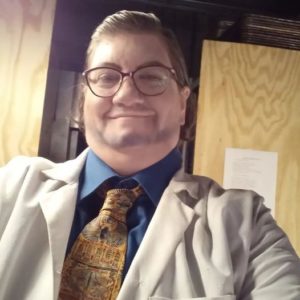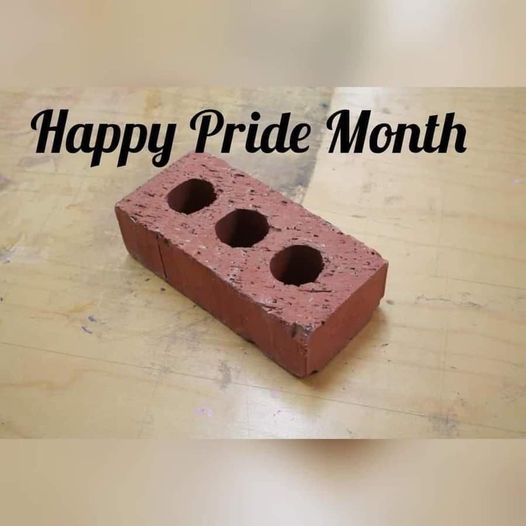
By Angelia Sparrow
So many places I could start this. It’s June, and hence Pride.
Maybe we should make it Veterans’ Month.
When’s Straight Pride, hurhurhur?
It’s Men’s Mental Health Month and you all need mental help.
Maybe we should drop the TQ+, they are scaring off allies.
And Donald Trump Jr. announced on June 16 that the transgender movement is the most violent domestic terror threat in the world.
These are a few of the recurring things I’ve seen this month. There is a saying that the comments on any post about feminism prove the need for it. Ditto Pride. After all, homophobia is just misogyny’s rainbow-clad twin.
In 2024, the ACLU tracked 533 anti-LGBTQ laws through the state legislatures. This year it’s 597. And 937 anti-trans bills have been proposed. Over 100 have passed. 26 states have passed bans on gender-affirming care.
Across the country, feeling the shift in the zeitgeist, corporate sponsors are pulling out of Pride parades and festivals. San Francisco, New York and St. Louis are some of the bigger ones.(Memphis Pride got rained out HARD, lightning strikes and flash flooding. The parade was postponed.)
And this is why Pride is more necessary than ever. Twenty percent of GenZ (1997-2006) are LGBTQ+. For reference, that’s my two youngest kids, age 27 and 25. Their grandfather’s generation, before 1946, has about 2%. But they were one of the hardest hit by AIDS.
Overall, about 9 percent of the population is some shade of queer. In demographic comparison, that’s all the Asian, Pacific Islanders and Native Americans, put together. It’s two-thirds of the Black population. It’s the same number as all the non-Christian religious folks in the country: Muslim, Jewish, Hindu, pagan, etc.
Yet, right now, that 9 percent is under attack by state and federal government. According to Project 2025’s aim to “Promote Life and Strengthening the Family,” all “trangenderism and woke gender ideology” must be removed. To this end, they want:
- The Department of Justice to treat anti-gay discrimination as a free speech issue (We reserve the right to refuse service);
- The Department of Defense to remove trans soldiers from the military;
- The Department of Health and Human Services to remove a focus on LGBTQ+ equity;
- The Supreme Court to quit applying Bostock (Title VII gender equity ruling) to matters of orientation and gender identity.
And that’s only part of it.

My wife is trans. And the laws make her public existence a minefield. She is very cautious about going to the restroom in public. She ignores the dirty looks we get in restaurants (I tend to glare down the offenders). While all her ID has her real name on it, her driver’s license still says M. Because Arkansas decided emergency action was needed against all 200 people who had an X, and all the trans people.
I am scared for her all the time.
While you personally may not be part of the QUILTBAG, you may not be out of the woods. In February, Oklahoma introduced an extremely broad obscenity bill (SB 593),which could be applied to anything someone believes is obscene. If you write so much as a kiss before closing the door, and someone takes offense, it can be prison time, massive fines for the author, the publisher, and any book seller or librarian. And if you write LGBTQ+ characters, that will be the first target if this passes.
Oklahoma already passed HB 1217, which criminalizes “obscene performances,” especially drag, around minors. This is a slippery slope bill. First, they make drag illegal/obscene. Then they arrest trans women for wearing dresses to the grocery store and charge them with exposing minors to obscenity. Immediate prison and registry on the sex offender list. And if Project 2025 gets its way, executing them. Over going out for a box of Cheerios.
Some of us who know how this picture (Cabaret) ends are fighting it every step of the way. Others don’t think it will get that bad. And a small minority think their wallets will protect them.
“No one ever talks about [extermination]. They just do it. And you go on with your lives, ignoring the signs all around you. And then, one day, when the air is still and the night has fallen, they come for you.” The 2000s X-Men movies are a gay metaphor and Magneto’s assertion has only become more salient since.
And this is why we need Pride. To come together in public, in joy and color and happiness. To wave at all those who cheer. To cheer for those who march. And most of all, to dance our defiance of a tinpot fascist who thinks we can be eradicated and no one will care.
In the darkest days of the AIDS crisis, the saying “Bury your friends in the morning. Protest in the afternoon and dance all night,” came into being. We dance. Well, others dance. I no longer can. So I make things and I write.
This year, all my amigurumi was in Pride colors, rainbow, lesbian, nonbinary and other.
And yes, I am writing. One of the tenets of Primali Paganism is Divine Defiance. So, I write. It’s slow going through the COVID brain fog, but I continue. Whether an Orc lord marrying for political gain, or Santa and Krampus having some (ahem) VERY private time between holidays, I’m still making words happen.
“There was a cabaret and a master of ceremonies, in a city called Berlin in a country called Germany. And it was the end of the world.” — Joe Masteroff, Cabaret
From Cemetery Dancers, the fourth of the Withycombe and Doyle books, in progress.
[His father] looked sharply at Charlie. “You never seemed to have much interested in dating or courting. Has that changed?” When Charlie glanced down, he nodded. “I see. It hasn’t.” Mr. Doyle lowered his voice. “Is it Edward? You try to keep your letters casual, but you adore him, and it comes through in every line.”
There it was, the big secret, the one that could get him arrested or deported. And his father had seen it without him even telling it.
“Yes. And it’s so illegal.”
“I can’t say I approve. We would like to see you married, although, your Ma would prefer you live nearby so she can spoil the grandbabies rotten. Having them across a whole ocean would be a trial to her.”
“I wasn’t asking for approval of Edward. I was asking about how to get married when it looks as if the marriage is going to be arranged for me.”
His father shook his head. “That’s a hard one, son. The best you can do is be kind and sweet to her. But that’s your nature so it shouldn’t be hard. Remember she is in the same position and no easier with it. You don’t have to love her right away. But do try to be her friend. That may grow into love. There is more to love than the swoopy, giddy feeling.
“When Ma smiles at you, is it still like the sun coming out?” Charlie asked.
His dad smiled. “Every time.”
My writing work can be found on Amazon or the Literary Underworld as Angelia Sparrow or Nick Rowan (NOT the one who writes the Silk Road travel books). My links can be found at these pages: Angelia Sparrow or Nick Rowan. My crochet work is available at The Traveling Tinkers.
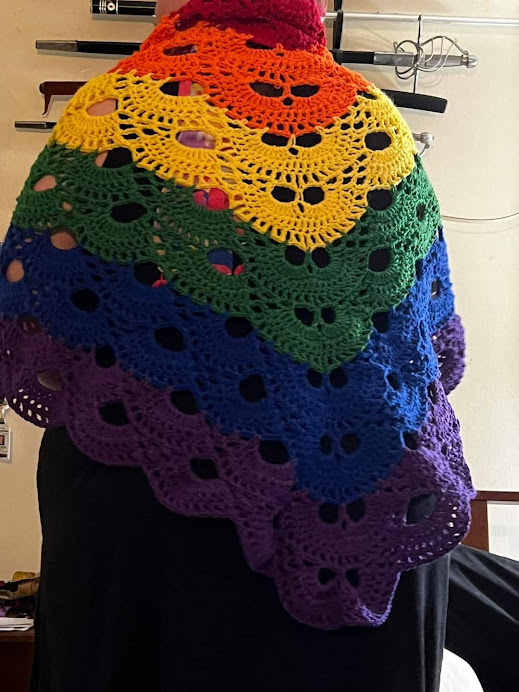

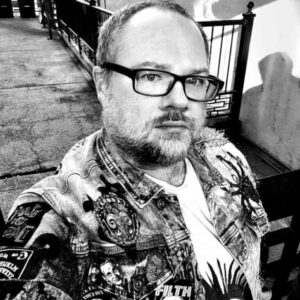 ALEXANDER S. BROWN is a Mississippi author whose first book, Traumatized, was published in 2008 and later re-released by Pro Se Publications. Brown is co-editors/coordinator of the Southern Haunts anthology series published by Seventh Star Press. His horror novel, Syrenthia Falls, was published by Dark Oak Press. His short story collection The Night the Jack O’ Lantern Went Out, published by Pro Se Press, reached bestseller status in three literary categories on Amazon.com upon release. Brown is the author of multiple young-adult steampunk stories found in the Dreams of Steam anthologies, Capes and Clockwork anthologies, and Clockwork Spells and Magical Bells. His more extreme works can be found in the anthology Luna’s Children, published by Dark Oak Press; Reel Dark, published by Seventh Star Press; and State of Horror: Louisiana Vol. 1, published by Charon Coin Press. Brown is also an actor and producer in the short film The Acquired Taste, inspired by a story in Traumatized and directed by Chuck Jett.
ALEXANDER S. BROWN is a Mississippi author whose first book, Traumatized, was published in 2008 and later re-released by Pro Se Publications. Brown is co-editors/coordinator of the Southern Haunts anthology series published by Seventh Star Press. His horror novel, Syrenthia Falls, was published by Dark Oak Press. His short story collection The Night the Jack O’ Lantern Went Out, published by Pro Se Press, reached bestseller status in three literary categories on Amazon.com upon release. Brown is the author of multiple young-adult steampunk stories found in the Dreams of Steam anthologies, Capes and Clockwork anthologies, and Clockwork Spells and Magical Bells. His more extreme works can be found in the anthology Luna’s Children, published by Dark Oak Press; Reel Dark, published by Seventh Star Press; and State of Horror: Louisiana Vol. 1, published by Charon Coin Press. Brown is also an actor and producer in the short film The Acquired Taste, inspired by a story in Traumatized and directed by Chuck Jett.
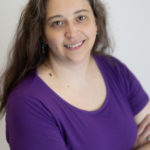 writing books, she’s a librarian at a local library, which is kind of a superhero. Her superpowers include always knowing what kids like to read, being able to read more than 10 books at one time, and the ability to eat more pizza than anyone.
writing books, she’s a librarian at a local library, which is kind of a superhero. Her superpowers include always knowing what kids like to read, being able to read more than 10 books at one time, and the ability to eat more pizza than anyone.